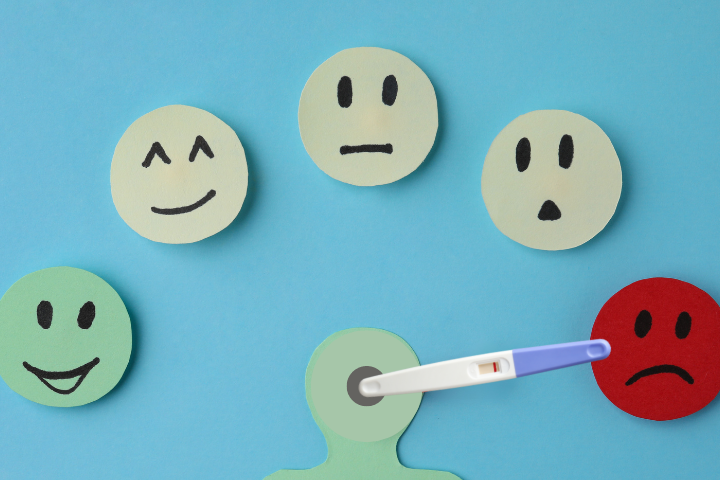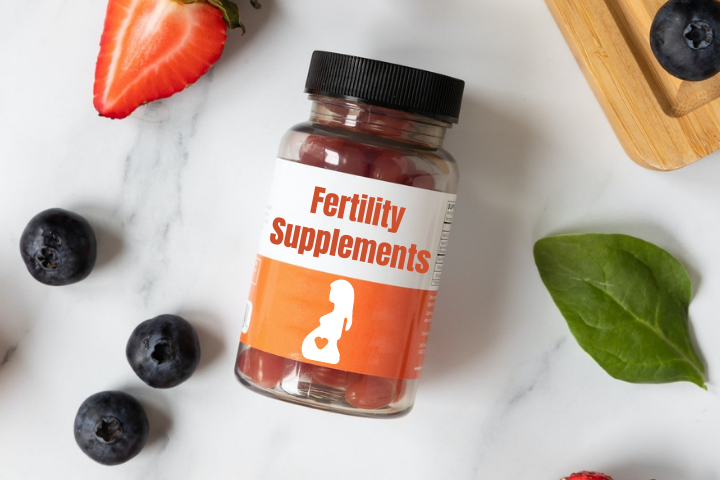The road to conception is not always easy. In fact, for many women, it’s an extremely tough one. There are so many reasons why you could be struggling to conceive, and many of them lie outside of your control. Accepting that can be a painful and confusing experience.
However, it’s important not to give up hope, and to focus on the parts of your reproductive health that are within your control. From temperature tracking to taking supportive vitamins, there are plenty of things you can do to help support your fertility goals.
In this post, we will take you through a list of tips that may help provide clarity and guidance to your conception journey. Let’s look through some gentle solutions together.
5 Ways To Support Your Body’s Reproductive Health
Women’s bodies are so diverse and complex. Your requirements may differ greatly from those of others. We are all beautifully unique, and on the outside, and on the inside too. However, there are some basic practices and tools you can use that can support your body on its fertility journey, such as:
1. Keep a cycle calendar
Keeping a menstrual cycle tracker is one of the simplest, easiest, and most accessible ways to gain deeper insight into your reproductive health and your fertility. No matter who you are or how long you have been trying to conceive, a cycle calendar will always serve as a useful document for cycle monitoring.
A cycle calendar will help you outline the dates/weeks that you are menstruating, ovulating, in your follicular phase, and in your luteal phase. When you know which parts of the month you are most fertile (during ovulation), it will be easier to plan your conception schedule.
You can create your own cycle calendar, or use a digital app that does the legwork for you.
2. Use a wearable ovulation tracker
If you would prefer something a little more in-depth, using a wearable ovulation tracker can be a very useful and practical tool for supporting your fertility journey.
There are a wide variety of wearable ovulation trackers on the market, all of which function mainly by tracking your basal body temperature. Contrary to the internal body temperature which is just the average body temperature of an adult human, your basal body temperature is more specific to your body It plays a key role in your reproductive health since it can determine whether you’re ovulating or not.
3. Ask the right questions
Having a conversation with your primary care provider or gynecologist is a great place to start. Unfortunately, doctors who are not fertility specialists can focus on the wrong things when it comes to conception, especially when there are struggles along the way. But advocating for yourself and knowing which questions to ask can make the dialogue more productive for everyone.
Some good questions to ask your doctor could be:
- If I have PCOS or endometriosis, how does that impact my fertility journey?
- If I had a prior ectopic pregnancy, how does that affect my chances of conception going forward?
- Do I need any medical tests or vaccines before I start trying to conceive?
- How does a previous miscarriage affect my chances of future fertility?
- When should I see a fertility specialist?
Even though asking some of these questions can feel scary, finding the right answers can put your mind at ease and give you a clearer path for moving forward in a safe and healthy way.
4. Take prenatal vitamins
The right vitamins can play a central role in preparing your body for conception and supporting a variety of other fertility-related bodily functions. Some of the best prenatal vitamins include:
- Folic acid – aids baby development and prevents birth defects
- Vitamin C – protects cells and cell development
- Zinc – supports the immune system and metabolic function
- Selenium – aids DNA development and prevents cell damages
- Iron – protects red blood cells and promotes oxygen distribution
- Vitamin B12 – helps form red blood cells and DNA
Taking prenatal vitamins may not be able to guarantee conception, but it definitely helps to prepare your body for it by providing it with all the building blocks it needs for fertility. In addition to taking prenatal vitamins, you can also give your body a boost with an immune boosting supplement. In the US, more than 50% of the population takes these supplements to optimize their health and wellbeing, and your body can reap the benefits pre, during, and post pregnancy too.
5. Explore fertility grants and funding options
Fertility and IVF treatments can be expensive, but fortunately, you do not have to foot those bills alone. There are fertility grants, scholarships, and other funding options available in the US (and some other countries), which can help offset the brunt of these costly treatments.
Coping With Negative Tests: Supportive Tips
Trying to conceive can be an emotionally, mentally, and physically draining experience. Protecting your heart and keeping your energy levels up are essential. So, make sure you and your partner are equipped with everything you need to mitigate stress or emotional flux.
- Give yourself permission to feel sad – Dealing with an unsuccessful pregnancy can be extremely painful and emotionally taxing. Don’t hide from your emotions; feel them, allow them to exist—it is completely natural.
- Lean on friends and family for support – Loved ones are there to support you when times get tough. Talk to them and allow them to help you through this process.
- Do not blame yourself – There tends to be a lot of self-doubt that comes alongside difficult fertility journeys. But it’s important to remember that you are trying your hardest, and the fact that it’s taking longer than expected isn’t your fault.
- Do something fun and relaxing – Feeling sad and frustrated can be exhausting. Remember to give yourself a break! Go for a walk, see your friends, take a weekend trip, and enjoy some retail therapy. You have earned it.
In the midst of focusing on bringing a child into the world, it can be easy to forget about looking after yourself. Do not forget to get some much-needed self-care time in and utilize any sources of emotional, physical, mental, or financial support that is available.
Put Yourself First
At the end of the day, fertility and conception are going to be personal experiences. Your body’s needs are unique, which means your fertility experience will be, too.
Do not compare your process to anyone else’s. Focus on what you need, and how you can best serve yourself during this experience. You are doing a great job.
If you would like to learn more about GENESIS Fertility New York or are ready to schedule an appointment, please speak with one of our representatives at 929-605-5467.






